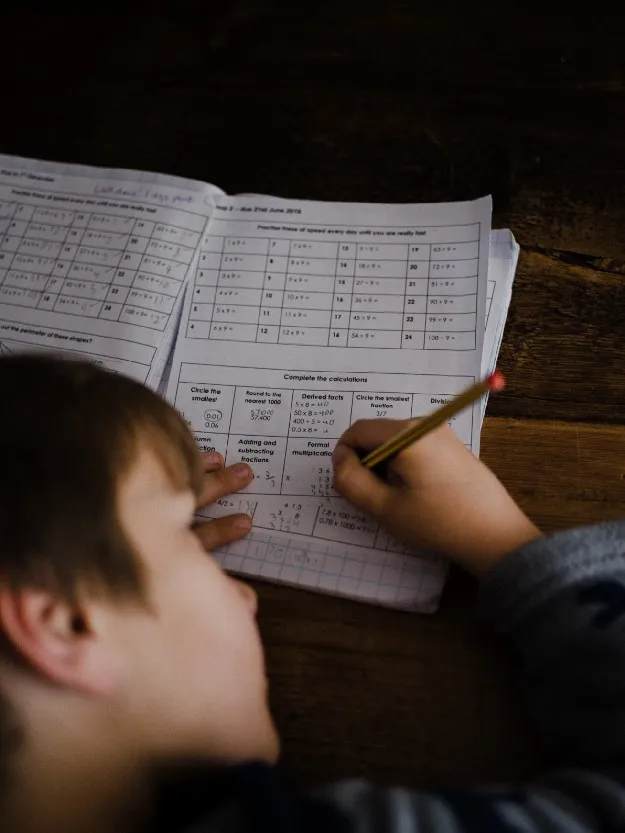
Asian countries are notorious for their stringent rules and the desire for their children to do their absolute best in life, no matter what it takes. Pressure from parents forces students to study for hours on end and forget about recreational activities, damaging our mental health.
With Asian countries already disregarding the importance of mental health, they make this even worse by emphasizing academic achievement in schools as the only way to have better jobs in the future, as mentioned in an article by Saani Kulkarni.
On the face of it, parents are just looking out for us. Most of us know that achieving financial independence and freedom is by working 9–5 jobs, but is it the only way?
Useful talents like writing, art, music, and acting are often disregarded in Asian countries as “skills that won’t earn you money.” The only skill parents want their kids to develop is studying and nothing else.

Jobs worthy of being proud for Asian parents are Lawyers, Engineers, Doctors, or very successful people in business.
If you’re not one of those, well, you already know what it means.
Even as young seven years old, my parents were already pressuring me to get better grades in school.
Source: Unsplash.com/Austin Distel
I still remember when I got the highest score in our class with only three mistakes, and still, my parents were disappointed because I was so close to a perfect score, and I couldn’t get it.
Another was when I ranked as one of the top students in our class in eighth grade, but still, my parents got angry because I did not rank first.
To clear things up, I do not hate my parents, but I didn’t particularly appreciate how they treated me that my grades were of higher importance to them than my mental stability.
But now a college student, I have grown the confidence to speak to them about it, and here I show you how academic pressure from my parents affected me.
# 1. It made me depressed.
Studying non-stop basically meant I had no time for recreational activities. Just a disclaimer, my parents did not lock me in a room to learn, nor did they not feed me if I did not review no.
But their disappointed faces when I show them my score during exams told it all.
Because I only focused on learning, I did not have much time to interact with my classmates, and I lost all the excitement I had when playing with other kids.
And this is backed up in a statement by Kaur in 2014, in which the author stated that parents’ high expectations from their children’s academic performance could sometimes cause mental illnesses.
And it’s not just me who struggles with this; many other students suffer from academic stress too.

During 10th grade, I was so anxious about possibly going to different schools and getting a scholarship that it was the only thought in my mind. I was so depressed that I thought of committing suicide, but thankfully I did not go through it.
But some are a little less fortunate.
In a study titled “Depression and Anxiety,” the author found that 9% of 67,000 college students have attempted suicide, while 20% reported having done self-harm.
And in an article found in the Governs State University, the author stated that suicide is the 3rd leading cause of suicide for people aged 15–24.
Academic pressure is an issue that needs to be taken seriously, and it is something that we as a collective should be very wary of.
## 2. It made me not want to open up.
Because my parents were primarily disappointed with my academic achievements, I decided not to open up about it anymore.
I was a straight-A student during my high school years, scoring at the top of most exams in our class, but my parents never knew about it.

Adding to this, I ranked first in 9th grade, and I still did not tell my parents about it. They just learned about it when it was time for parents to pay our remaining balances in our school and attend the last meeting before graduating.
My parents were proud of me because I ranked top of our class and was upset because I did not tell anybody about it how I wanted to scream and cry at that time because I was so full of them at that time, so oblivious to the fact that this was all their doing.
Instead, I smiled and told them that I didn’t tell them because I was just too tired that I forgot about it.
Another time was during my senior high school days, I was only of a small number of people who got an average of 96%, but my parents did not know about it until graduation.
In fact, until now, this habit of mine is not lost. Only I and my girlfriend know that I started blogging and writing on Medium and now on Hive.
I never once mentioned it to them because they might be ashamed that I would instead write for a living than to study and become an engineer in the future.
In an article titled “WHY TEENS TUNE OUT THEIR PARENTS,” the author highlighted one of the reasons why teenagers are too scared to open up is because they are too ashamed and afraid to let their parents down.
I don’t think that this attitude will ever change, I’ve gotten used to people being disappointed with me, and that’s fine.
### 3. I always think that I’m not good enough.

Because of my parents getting at me on my academic achievements, I always think that I’m not good enough.
“No matter what the situation, there might be, and always be some room to improve,” that’s what I always say. If it’s anything below perfect, then consider it as a failure.
Even in life, I always think that I’m a failure because I haven’t achieved anything yet, which makes me feel embarrassed.
The constant thought of not being good enough has been engraved in my brain and will always stay there if I don’t change my ways.
But I think it’s time that I break this mindset.
I now realize that I will never be the best at anything, and that’s perfectly fine.
Someone might be better than me at writing, and someone probably will, and that’s okay. I don’t write to become the best writer there is; I write because I love it, and I enjoy doing it, regardless of what other people think.
It’s okay to acknowledge that someone will be better than you; accept that.
I’ve learned to love my imperfections.
To the parents who might be reading, I hope this has opened your eyes to what pressure can do to your kids. And I also hope that you try to change your ways.
To any student that’s reading this, I hope you also learn to love yourself. Don’t force yourself to become the best; do what you love, and enjoy it.
So, which realization could you relate to the most?
Let me know in the comments below.
This article was already published on Medium, which is my own work.
